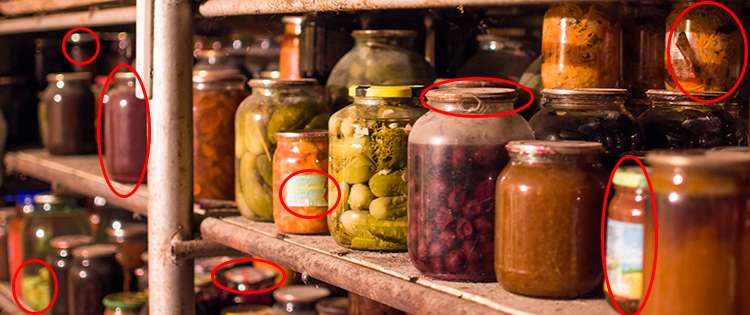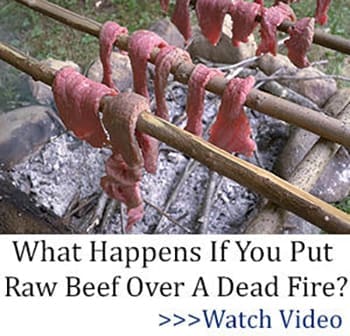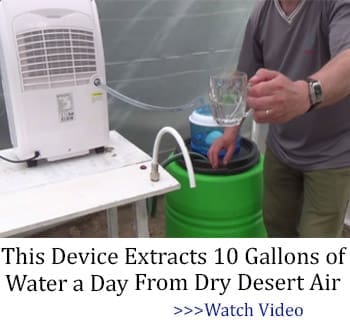Preparation is the key to survival, and having enough food resources for you and your family in case of an emergency is an important part of your strategy. Farmers have been storing food for centuries, but preserving it has its challenges. Throwing rotten food in the trash is frustrating, but getting food poisoning is a health risk you don’t want to take. Unfortunately, fake news has overtaken the internet, and there is a lot of misinformation about how to store food. For this reason, I have compiled a list of 11 storage myths to ensure that you store any excess products the right way, and avoid the harmful consequences that come with storing it the wrong way.
1. Canned Food Will Be Enough

Canned food is a very convenient way to store edibles. Not only it lasts long, but it’s also cheap, and there’s plenty of variety. The problem is that the majority of products are low in vitamin C. While other nutrients are preserved, vitamin C doesn’t react well to heat. Additionally, canned food loses its nutritional value the older it gets. Add canned food to your stash, but get a lot of basic ingredients that if required, you could eat cold, or that you could use to supplement a cooked meal. Also, canned meat and vegetables are more efficient than full meals because you can combine them to make a range of dishes.
2. It Doesn’t Matter Where I Store My Food
It would be ideal if you could store food anywhere there’s space, but that’s just not practical. The aim is to keep the produce as fresh as possible until you need to use it, and there are some conditions that will accelerate the expiration process. A damp cupboard will rust cans, containers can burst in the freezer. High temperatures can alter the taste, deplete nutritional value, and the texture of the food. Rust on cans that can’t be wiped off may mean tiny holes have formed. Throw them away because the material from the tin can cause food poisoning.
3. I’ll Be Prepared Once I Have Enough Food For More Months
There is more to getting ready for an emergency than having enough food. You may have stockpiled enough for six months, but you’ve got to be strategic about the food you buy. Here are a few things to consider:
- Can everyone eat the food (allergies etc.)?
- Do you have enough ingredients to make full meals?
- Make sure the food is stored in the right conditions
- Check the food periodically to make sure it’s still fresh
- Do you have the right utilities to prepare the food?
In other words, don’t just stock your pantry with random food items, make sure you can use them if you need to.
4. The Expiry Date Will Tell Me How Long My Food Will Last
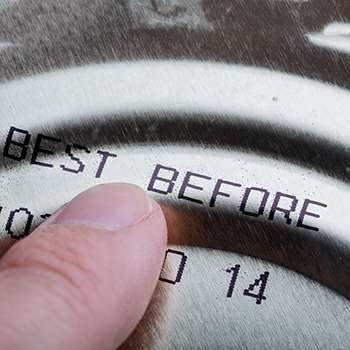
By law, manufactures are required to put an expiry date on their food products. The assumption is that this date will let you know when you need to throw it out, but that’s not always the case. It is possible for food to go off before the expiration date because it was stored in the wrong conditions. Therefore, as well as stockpiling food that will last for the next year, make sure it’s stored in the right conditions.
5. Taste Is Not Important When You’re Hungry
Obviously, your main concern when there is a shortage of food is to satisfy your hunger by any means necessary. Additionally, you want to feed your body with the right nutrients and energy to sustain yourself and your family during a difficult period. Nevertheless, when times are hard, one thing you’ve got to look forward to is a tasty meal, and if everything in the pantry tastes like cardboard, that’s going to do nothing for your morale which will make survival even more difficult.
6. Beans Will Do
Beans are good, but they won’t last forever. After a while, they’ll lose all their moisture and you’ll find it very difficult to cook them. If you need to revive beans in an emergency situation, you can either put them in a pressure cooker or boil them for three hours using a teaspoon of baking soda for every three cups of water.
7. Freeze Dried Food Will Be Enough
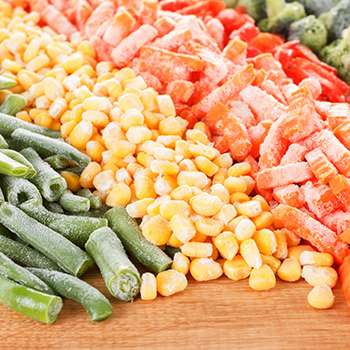
Like canned foods, freeze-dried foods are a good choice for long-term storage. They are easy to prepare, they provide a lot of nutrition and energy, and they taste okay too. However, the only reason why they last so long is that they’re loaded with preservatives, and they’re highly processed. Only buy enough to last for seven days, and don’t rely on it as your only food source during an emergency.
8. Wheat Will Solve All My Problems
Unless you have the equipment and the skills to process wheat, you won’t be able to do much with it if you didn’t have any other food. Wheat is good for making meals where the main ingredient is flour. Store some in containers sturdy enough to prevent rodents from chewing their way through. But you will certainly need more than wheat if you were to ever run out of food.
9. It’s Okay To Store Eggs At Room Temperature
This depends on where you live, and you can only do so temporarily. In the United States, commercial eggs are power-washed before being sent to grocery stores. This washing process strips the eggs of the cuticle which is its natural protective coating. Therefore, they need refrigerating so they don’t get contaminated with bacteria. On the other hand, eggs are not power-washed in European countries such as the United Kingdom, because hens are vaccinated which provides protection against salmonella.
10. Nuts Will Be Okay In the Pantry
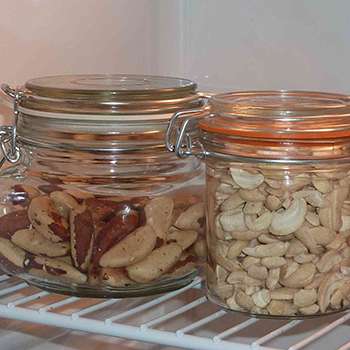
The oils in nuts go rancid when exposed to high temperatures. Therefore, storing them in the pantry is not a good idea. But you can keep them in the refrigerator for a year, and up to two years in the freezer.
11. Water Doesn’t Expire
This is correct, but water stored in bottles does. All bottled water has an expiry date printed on it by law. Experts advise that you don’t drink bottled water past the expiry date because when the plastic starts to erode, it leaks chemicals such as bisphenol A (BPA) and antimony. Once these plastic compounds are ingested, they can damage the gut, respiratory, and immune system.
Don’t wait until the last minute to start preparing for an emergency, now that you know what to do, go out and start buying the food you need. You should also make sure the areas in your home where you will store the food items are in the right condition.
You may also like:
What Really Happens When You Bury A Shipping Container (Video)
5 Recipes That You Can Make If You Live Fridge-Less
How to Keep Eggs Fresh for Months with Mineral Oil
How To Make A Moonshine Distiller
